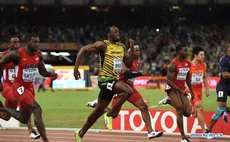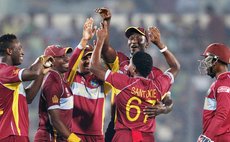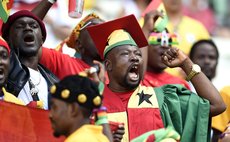Half measures
Towards the year's end and the dawning of the new year the West Indies selectors took the step to omit from the squad for the 2015 World Cup one or two notables – Dwayne Bravo and Keiron Pollard, both ostensibly all-rounders. This has not gone down well with a number of cricket followers. Then, added to this, the first named player has been replaced by a complete newcomer Jason Holder in the position of captain for the O.D.I team. This has given rise to outburst by Chris Gayle calling the work of the selectors headed by Clive Lloyd ridiculous in the extreme and hinted the matter to be carrying an odour of victimization.
It is alleged that Bravo and Pollard may be considered culpable for much of what transpired in India when the West Indies tour to that country was aborted in October of last year. Sadly, the fiasco carried the unenviable relationship to salary issues - something that has plagued West Indies cricket for some considerable time. Whatever the merits of the case harbored within the players' portfolio, all reasonable people concur that their action in India was untimely. In any case, there is the tiresome feeling that a preoccupation with money has too often dominated the concern of the players - glaringly so, in vivid contrast to the evident outlook of the national teams of other countries.
We never hear of England, Australia, South Africa, India, Pakistan, Sri Lanka, New Zealand or even Bangladesh or Zimbabwe airing grievances about pay in public. Somehow, any such issues are protected from sordid exposure by the self respecting and candidly enough, it seems only the players of the West Indies team fail to be sensitive to the need to keep things to a level discernible as decent and meaningful in the context of love of country and national pride.
Maybe England, Australia, South Africa and New Zealand typify themselves as mature democracies guided by an abiding belief in self worth, not to be debased in the sight of others rated nearer the category of Third World. The others: India, Pakistan, Sri Lanka, Zimbabwe and Bangladesh may be contained by the restraining factor of volatility always regarded as on a short fuse in the public undercurrent. In the former the game must fit the national image. In the latter the game (and thus the players) must fit what their public will accept as embraceable. Bear in mind the salary of an international cricketer is immeasurably higher than the ordinary pay of a factory worker in Calcatta, Karachi, Colombo, etc.
Most recurring comment coming from the Caribbean public accuses our players of being in cricket only for the money. The man in the street alleges there is no lack of cricketing ability, only a serious lack of responsibility. There is enforced commitment to perform outstandingly to meet performance requirement to maintain a place in any one of the big commercial leagues like the I.P.L. You fail as a player to meet your end of the bargain and you are likely to be dismissed without sympathy on the part of anyone. It is a fact of life from the point of view of a business consideration. The crowds must be attracted. So, our big stars will ensure they shine in the I.P.L, the Australian Big Bash etc. However, who is anybody to insist that they must meet a responsibility to reach and sustain a reasonable standard of performance when representing the people of the Caribbean?
Forget the India debacle and journey back a few days to 17th December, 2014. West Indies won the toss and invited South Africa to bat. The scoreline progressed from 57 for one to 57 for three without another wicket falling before De Villiers' dismissal for 152 at 449 for four. En route Amla got his double century and the debutant Van Zyl his maiden Test century before a declaration at 552 for five.
Palpably, Ramdin and his boys dropped a few catches, probably in concert with day dreaming about more pay for less work! The West Indies response was 201 in which Devon Smith, 35, Kraigg Brathwaite, 34, Leon Johnson, 31 and Marlon Samuels, 33 all got starts without managing to focus on persevering to amass a big individual score. The sizable South African lead of 351 browbeat West Indies into humble submission in the follow on. All out for 131 and an innings defeat with 220 runs to spare, all this concluding on the 5th day after some time had earlier expired through rain.
Lessons of the 1st Test did not sink in deep and gift giving associated with Boxing Day saw South Africa again sent in to bat. And that they did to the tune of 417 for eight declared but heavy losses through rain cut the exchange short with West Indies trailing at 275 for 9. Thankfully, Brathwaite and Samuels both recorded centuries. Brathwaite, 106, his 3rd Test century, and Samuels 101, his 6th.
The 3rd Test at Cape Town evoked marginally greater resistance by West Indies who this time batted first for 329 coming in 100 overs. Smith reached 47, Johnson 54, Samuels 43, and Blackwood 56 - not one of them waiting for the South African bowlers to really earn their wickets.
Response by South Africa was 421, a lead of 92. They had lost their last five wickets for 37 runs and almost inevitably West Indies committed similar suicide to fall for 215 runs, leaving the homesters access to victory by eight wickets.
What was pitiful in all this was the way in which Samuels on 74 needlessly squandered his wicket to make it 182 for 4 to cause an end to an 87run partnership - just when he appeared to have revealed an admirable approach to emulate the South African appetite for run scoring.
A 2-nil loss in the 3-match Test series to the number one team in the world may not register as a disgrace, and when West Indies managed to gulp down the T20 series 2-1 it was possible for some of us to envisage our boys could be turning the corner out of a prolonged darkness on the international scene. However, the huge bombshell came in the 2nd ODI as South Africa exploded 439 for 2 in 50 overs, missing the world record of 443. Amla smashed 153 not out, Rossouw 128 and De Villiers, 149, in which he feasted to the fastest ever one day century in 31 balls!
West Indies replied with 291 for 7 - very good any other time but not this time - and leaving us to wonder how soon West Indies will pay fullest concern to how best we might focus on measuring up to the optimal performances of our assailants, rather than the prodding of a preoccupation with the next pay issue. Some of my friends say the dismissal of Bravo and Powell can be construed as half measures - and more players should have been axed in order to simulate a new beginning.




